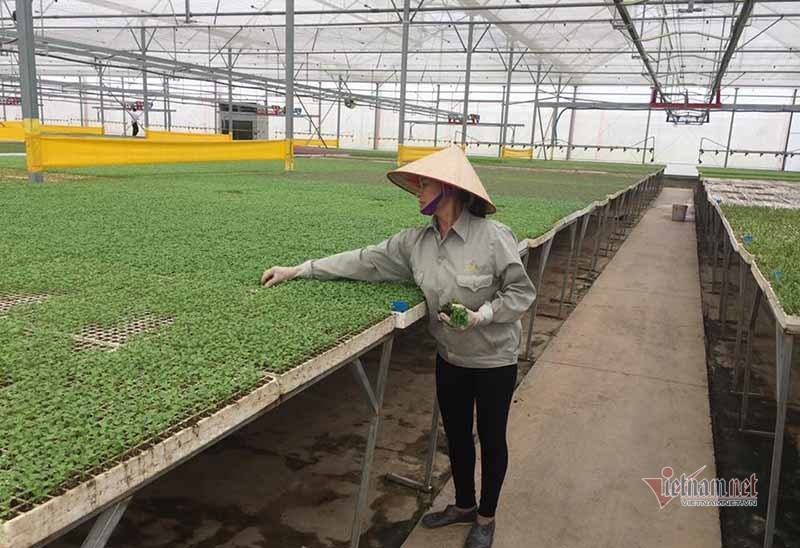
Take the example of a cocoa farming cooperative in Dak Lak that cannot borrow money from banks to develop a cocoa processing line. The banks refused to lend because the cooperative did not have private land-use rights and it would not accept separate land-use rights of cooperative members as collateral for loans.
The cooperative then had to give up its development plan.
A survey found that real estate now accounts for 60 percent of total mortgaged assets of 14 commercial banks. Many enterprises don’t have collateral in land.
The situation faced by the cooperative is typical of many cooperatives, enterprises and households in Vietnam. Having no land to use as collateral, they cannot access official credit. As opportunities to access bank loans are few, they find it difficult to expand investment and develop.
There are still some types of property rights that have not been recognized such as: the right to lease real estate; the right to exploit minerals; the right to exploit natural resources; the right to receive insurance money. And there are other instances of restricted property rights in many areas.
Weak property rights are one of the reasons why Vietnam’s enterprises cannot grow.
Nguyen Minh Thao from the Central Institute of Economic Management (CIEM) said many studies and surveys on property rights show that the countries which have the environment and institutions that can effectively protect property rights will have higher productivity and prosperity.
Property rights are an important indicator in many rankings in the world such as: ‘International Property Rights’ ranking from the Property Rights Alliance; ‘Global Competitiveness’ from the World Economic Forum; ‘Doing Business’ from the World Bank; ‘Business Environment’ from Forbes magazine; ‘Economic Freedom’ from the Cultural Heritage Fund; and ‘World Economic Freedom’ from Fraser Institute (Canada).
Vietnam ranks low in most of the rankings of property rights by international institutions.
In the International property rights index (IPRI) of Property Rights Alliance, Vietnam, for example, has been, over the last seven years, 77th at the highest and 84th at the lowest, out of the 129 ranked economies.
According to VEPR (Vietnam Institute for Economic and Policy Research) deputy director Nguyen Quoc Viet, development of asset ownership institution and institutional effectiveness of the protection of property rights in Vietnam is low. Moreover, Vietnamese law is not clear and complete to define a right as a property right. This makes it difficult for individuals and legal entities to use the rights related to properties in their transactions.
Tran Thuy